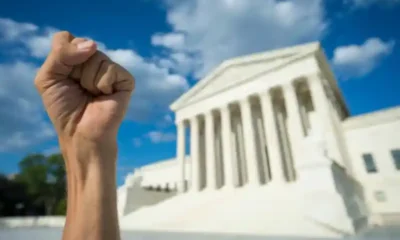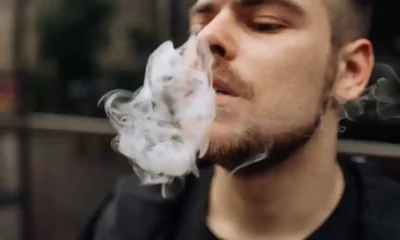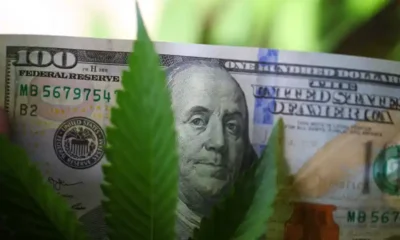Connect with us
Published
2 years agoon

The emerging cannabis industry in newly legal states is highly competitive, and this holds especially true in regard to social equity opportunities, promoting equal opportunity in the cannabis industry and helping specific communities enter on a level playing field.
In Arizona, the deadline passed for business owners to apply for the chance to win one of 26 equity cannabis dispensary licenses, worth potentially millions of dollars; the state received more than 1,500 applications.
The licenses will be issued under a 2020 ballot measure’s provision, part of the Proposition 207 recreation cannabis proposal, for “people from communities disproportionately impacted by the enforcement of previous marijuana laws.”
According to Fox 10 Phoenix, the Department of Health Services is reviewing the applications following last week’s submission deadline and said a random selection in spring 2022 process will determine who is awarded the social equity licenses.
They report that each applicant had to pay a nonrefundable $4,000 for a shot at a license. From cannabis business applications alone, the state has made $6 million from these applicants, according to the report.
Though, according to department spokesman Tom Herrmann’s statement to the Arizona Daily Star, it’s too soon to say when the review process will be completed or when the winners will be selected.
“There is no time for that review process to be completed, but with more than 1,500 applications to review the process could require a significant amount of time,” he said.
The winners of the licenses are afforded the ability to start their own cannabis businesses, or potentially sell that license right away if their application is picked.
“People will see if they won, and at that moment they will know they would have won a license, instantly, valued at 10 to 15 million dollars,” said Demetri Downing, founder of the Marijuana Industry Trade Association.
Fox 10 Phoenix shared the perspective of Arianna Munoz, one of the applicants “playing the lottery” so to speak.
“I’m praying everyday I get picked,” Munoz said. “There’s about 1506 people who also put in the applications themselves, so my chances aren’t too high, but I have faith.”
Munoz submitted two applications for herself and two for her mother, noting that even though it was challenging, she came up with money between herself and her family. She was hit with a possession charge in high school and said the potential payoff is worth the risk.
“Creating generational wealth, operating a dispensary would be ideal, but I’m not saying that selling a dispensary wouldn’t grant you that same generational wealth,” Munoz said.
Politics Director for the Arizona branch of cannabis advocacy group the National Organization for the Reform of Marijuana Laws (NORML) told Arizona Daily Star that he anticipates licenses generating anywhere from $12 million to $17 million on the open market if a licensee should choose to “transfer” a license after acquiring it.
Udell said this is considerably more than the last round of licenses Arizona issued, tied to specific rural counties and worth about $8 million. He said that social equity licenses can garner higher bids because of their more relaxed location requirements.
Though some question the huge profits motives and that the process even reached the stage it did before the deadline.
“I don’t think that the applications should have even been accepted at this point,” said Zsa Zsa Simone Brown, a member of Acre41, a group of Black female entrepreneurs with a focus on expanding Arizona’ new cannabis industry. The group also applied for one of the social equity licenses.
Acre41 and the Urban League of Greater Phoenix are suing the state, the Department of Health Services and political figures, arguing that the process is not inclusive enough and doesn’t stop established, multi-state cannabis corporations from buying these licenses once they are issued by the state through the lottery system.
A hearing for the case is scheduled in January. “If they need to be transferred, then they need to be transferred to another social equity applicant,” Acre41 member Celestia Rodriguez said.
Should the lawsuit succeed, the state would theoretically have to start the program from scratch, which Brown said would be more beneficial in building a true social equity program for Arizona.


You Don’t Understand the Difference Between Decriminalizing and Legalizing, Do You?


North Dakota Committee Files Ballot Measure To Legalize Adult-Use Cannabis


California County Mulls Reduction To Cannabis Cultivation Tax


Cheech and Chong Become Newest Operators in Call of Duty


Manage Your Munchies: This Year’s Top 420 Meal Deals


New York Cannabis Control Board Approves 101 New Adult-Use Licenses
